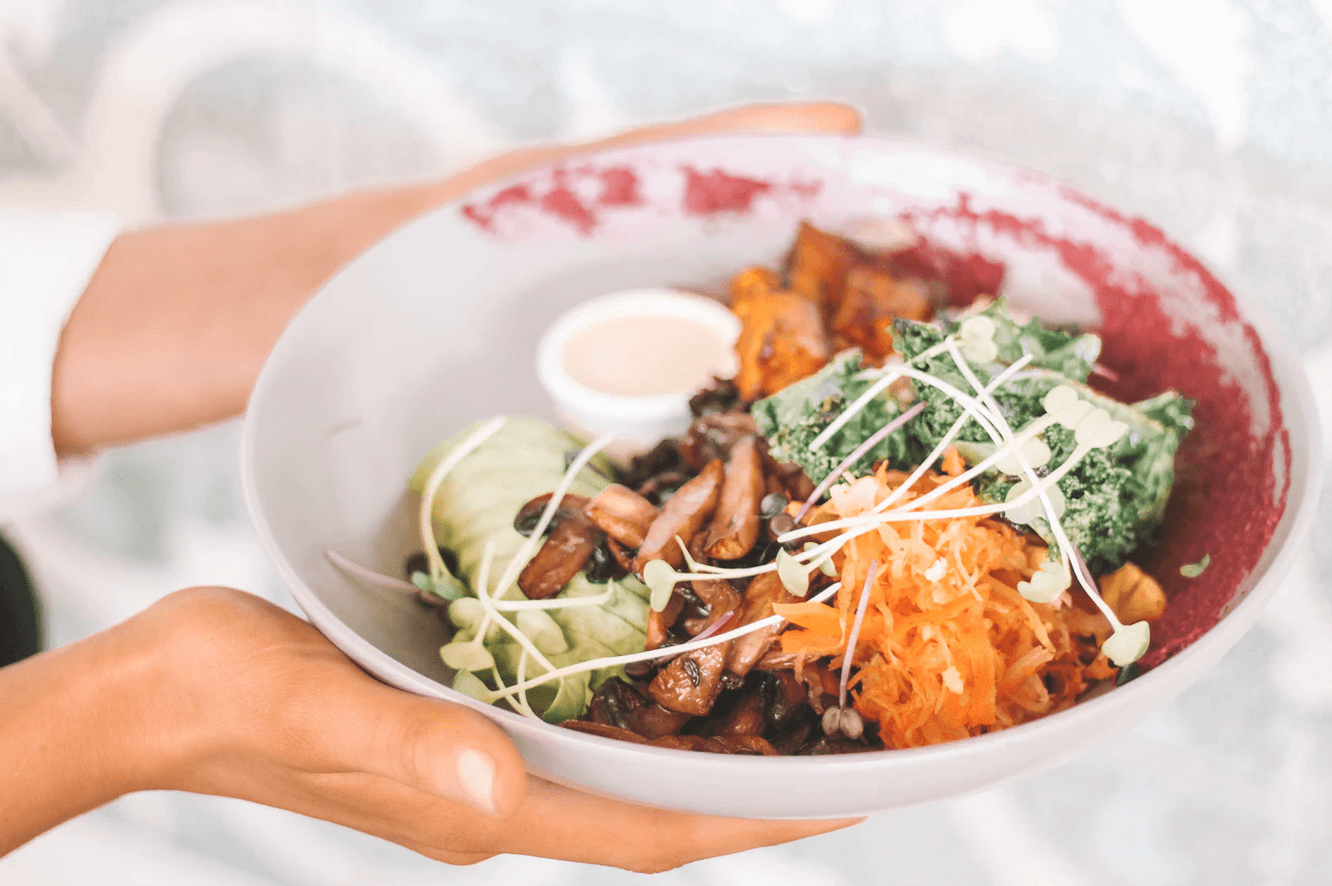
Plant-Based vs. Meat-Eater: What's Healthier?
The days of meat and three veg are long gone. Veganism, once deemed radical, is now commonplace. Plant-based diets are getting more traction than ever before, and not just on Instagram. Official stats reveal meat-loving Aussies have thrown their steaks off the BBQ, and gone for what’s growing in the backyard.
It’s all in the vegetables
It’s no secret veggies are good for us, but studies show that cutting meat out of the diet can be even better for our health, lowering the risk of coronary heart disease, type 2 diabetes and cancer. Why the drop in deadly lifestyle diseases? Fruits, vegetables, grains, soy and nuts–the basis of vegetarian meals–are rich in dietary fibres, folate, antioxidants and phytochemicals, which lower cholesterol and trans fats in the body. In a nut shell? Those eating mainly vegetables are getting more of the good stuff. They’re also slimmer than their omnivore neighbours, and seeing as obesity is a major contributing factor to cardio vascular disease and cancer, they’re also living longer.
What about deficiencies?
Unfortunately, it’s not as simple as just eliminating meat. Excluding entire food groups can have consequences, and one of the pros of including meat in your diet is you’re less likely to miss out on nutrients. Vitamin B12, a nutrient that keeps the body's nerve and blood cells healthy, is only found in dairy, meat, poultry and seafood, so eliminating these foods could lead to a deficiency. Zinc and omega-3 fatty acids can also be of concern. But when it comes to iron, a nutrient that’s often the biggest worry when people cut out meat, can easily be found in plant foods. And protein? Well this baby is in pulses, like beans, peas and lentils, as well as soy products.
The bottom line
Plant-based diets are proven to give a whole lot of health benefits, but just because you’re not eating meat doesn’t mean you’re automatically healthy either. Vegans have been known to chow down on as many processed foods as their omnivore neighbours, and other health factors like smoking and alcohol consumption play a big role.
Planning - Without proper planning we risk making hasty food decisions, and these decisions often lead to less vegetables. One way to combat this is by cooking nutrient-rich meals in bulk, and keeping them handy in the freezer. There are also great food delivery services that provide ready-to-eat foods that are not only wholesome, but cater to different dietary requirements.
Variety – Whatever your diet, variety is paramount. If you feel like your meals a little light on vegetables, try giving yourself two days a week meat free. This will encourage more creativity with vegetables. If you don’t eat meat and/or dairy, get educated on what foods you you’ll need more of.
Be mindful - Pay attention. Listen to what your body tells you. Perhaps eating completely plant-based comes naturally to you, and you find it easy choosing foods that are nutritious. If eating meat a few times a week feels good for you, do it. Your body is your best ally, and gives you a whole lot more information than any health trend.

Comments
Love this!! Super interesting read, thank you for creating :)